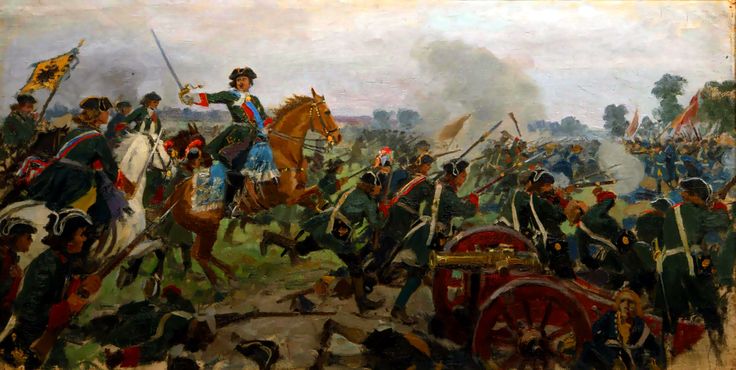 The Battle of Poltava, fought on June 27, 1709, was a significant military confrontation that took place during the Great Northern War. It pitted the forces of the Swedish Empire, led by King Charles XII, against the Russian Empire under the command of Tsar Peter the Great. This clash would prove to be a turning point in European history, dramatically altering the balance of power in the region. In this article, we will delve into the details of the Battle of Poltava and its far-reaching consequences.
The Battle of Poltava, fought on June 27, 1709, was a significant military confrontation that took place during the Great Northern War. It pitted the forces of the Swedish Empire, led by King Charles XII, against the Russian Empire under the command of Tsar Peter the Great. This clash would prove to be a turning point in European history, dramatically altering the balance of power in the region. In this article, we will delve into the details of the Battle of Poltava and its far-reaching consequences.
Background: The Great Northern War, spanning from 1700 to 1721, involved several major European powers vying for control over the Baltic Sea region. Sweden, a dominant force in the early years of the conflict, aimed to maintain its supremacy against the coalition of Russia, Denmark-Norway, and Poland-Saxony. King Charles XII of Sweden, renowned for his military prowess, sought to extend Swedish influence into the east and secure a foothold in the Russian Empire.
The Battle: The Battle of Poltava took place near the Ukrainian town of Poltava, where Charles XII’s forces confronted the larger Russian army led by Peter the Great. Charles XII’s initial plan was to engage the Russians swiftly and decisively. However, tactical mistakes and adverse weather conditions hampered the Swedish army’s effectiveness. The Russians, on the other hand, had learned from their previous encounters with the Swedes and employed innovative military strategies.
The turning point of the battle came when Charles XII was wounded and forced to withdraw from the front lines. With their charismatic leader out of action, the Swedish forces lost their momentum and faced relentless assaults from the Russian troops. The Russian victory at Poltava was resounding, with the Swedish army suffering heavy casualties and many soldiers being captured.
Consequences: The Battle of Poltava had far-reaching consequences that would shape the course of European history. It marked the beginning of Sweden’s decline as a major power and solidified Russia’s emergence as a formidable force. Charles XII’s defeat shattered the myth of Swedish invincibility, prompting a shift in the balance of power within the region.
The Russian victory at Poltava allowed Peter the Great to consolidate his control over the territories previously held by Sweden, including the Baltic states and parts of Finland. This expansion paved the way for Russia’s later territorial and political advancements in Europe.
Furthermore, the defeat at Poltava compelled Sweden to seek peace negotiations, ultimately leading to the Treaty of Nystad in 1721. Under this treaty, Sweden relinquished significant territories to Russia, further diminishing its influence in the Baltic region.
Conclusion: The Battle of Poltava was a watershed moment in European history, signaling the ascendancy of the Russian Empire and the decline of Swedish dominance. It demonstrated the importance of military innovation and adaptation, as well as the impact of strategic leadership on the outcome of major conflicts.
The battle’s consequences reverberated throughout the following centuries, shaping the geopolitical landscape of Europe. It remains a significant event to study, offering valuable insights into warfare, power dynamics, and the long-lasting consequences of military engagements.



















Add Comment